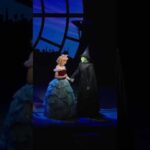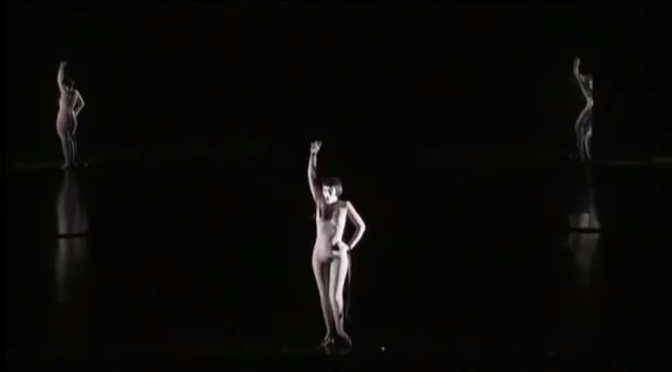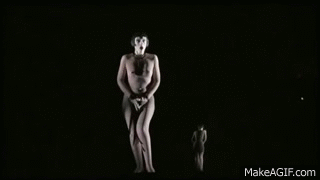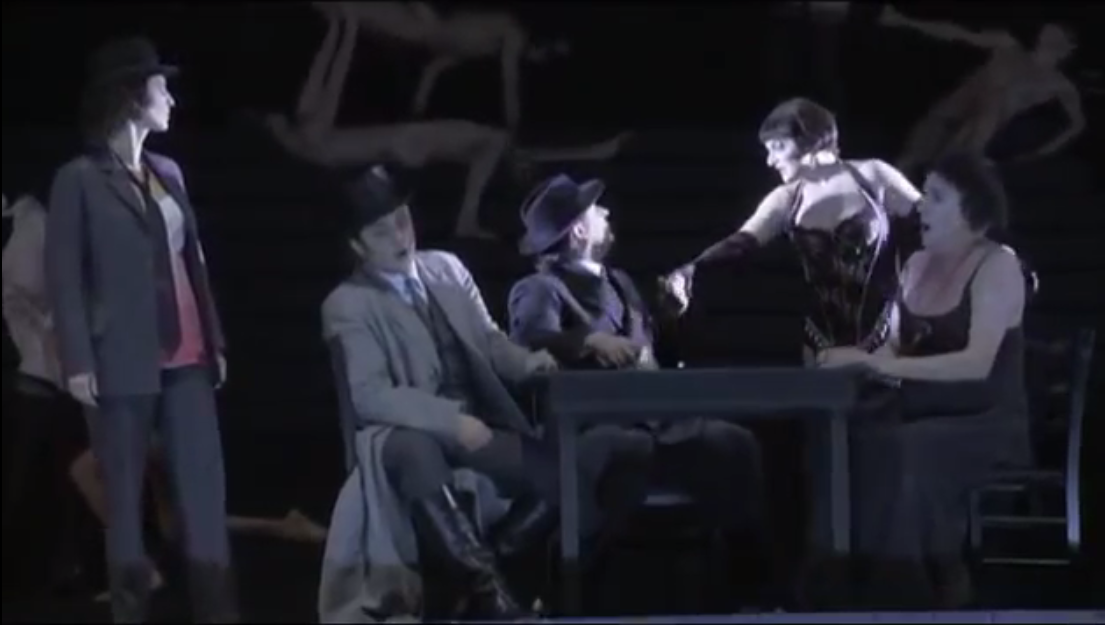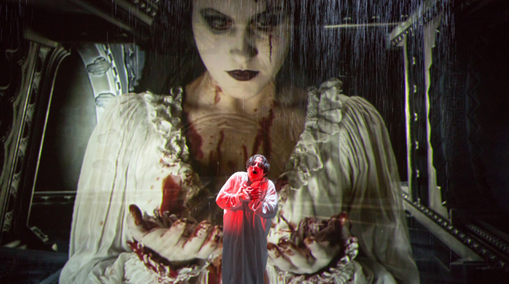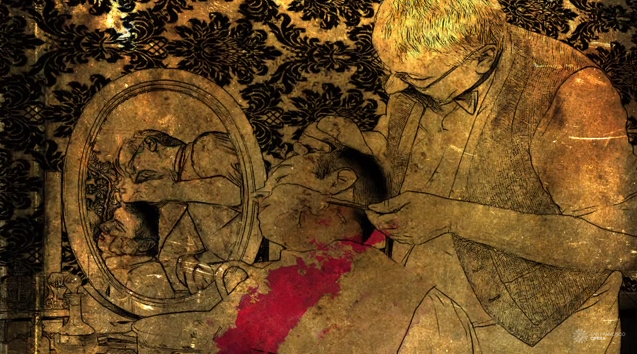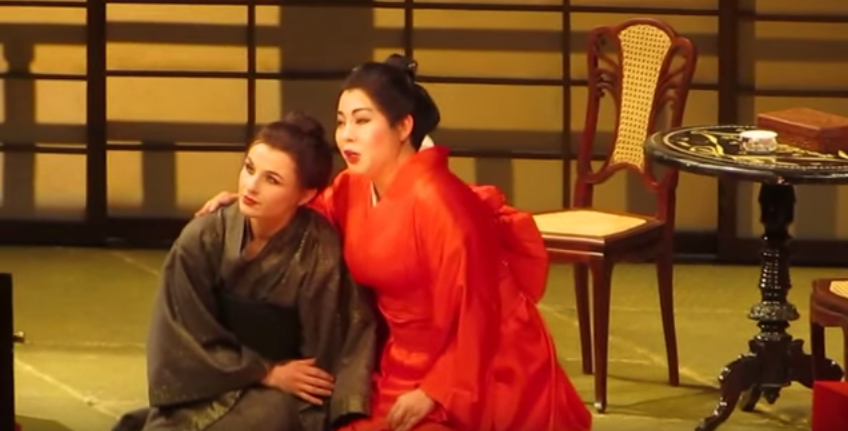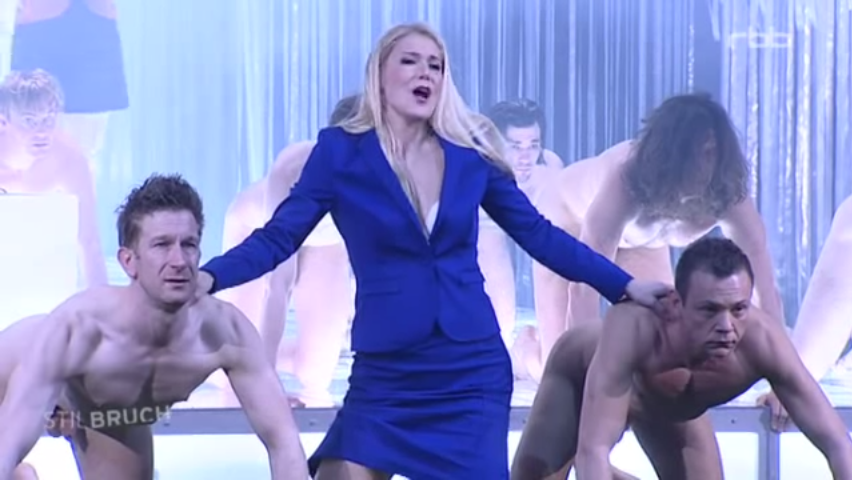By some stroke of luck, I get to discuss again nudity in opera. Unlike in my review of Salome though, I would be tackling an opera that I may have mentioned in my modern opera analysis but has not discussed in a single article – that would be Opera Geneve’s version of “Les Contes d’Hoffmann”.
Cast
Hoffmann – Marc Laho
The Muse/Nicklausse – Stella Doufexis
Lindorf/Coppelius/Miracle/Dapertutto – Nicolas Cavallier
Andres/Cochenille/Frantz/Pitichinaccio – Eric Huchet
Olympia – Patricia Petibon
Antonia – Rachel Harnisch
Giulietta – Maria Riccarda Wesseling
Voice of Antonia’s Mother – Nadine Denize
Spalanzani – Francisco Vas
Schlemil – Bernard Deletre
Luther – Rene Schirrer
Crespel – Gilles Cachemaille
Nathanael – Bisser Terziyski
Hermann – Romaric Braun
Stella – Delphine Beaulieu
Stage Director – Oliver Py
This is the very first version of Hoffmann that I have seen without reading any spoilers, not even a view on the composer so that I would surprised myself. So expect this to be different compared to the previous version of “Les Contes d’Hoffmann” (Rolando Villazon, Diana Damrau, John Relyea) I just did not expect the story that I saw because I saw the potential in it. It just so happened that I went “Huh?” when I realized that it was a trilogy and the continuity was dizzying. Sometimes I can’t help but think that the only thing that kept my attention in place was the nudity. Don’t worry. Jacques Offenbach’s composition sounds awesome. It’s worth putting it on replay mode for purposes of keeping it playing in the background.
“Les Contes d’Hoffmann” is an opera presented in 5 acts – the Prologue, Olympia, Antonia, Giulietta and the Epilogue. The acts that contain nudity are Olympia and Giulietta. Let’s analyze the Olympia act first.
Sorry to disappoint you, guys. But Patricia Petibon, the soprano playing Olympia, is wearing a suit. Upon closer look, you will see how fake the nipples and that little shrub between her legs appeared. It is a major deviation from the conventional portrayal where Olympia, being a doll, wore pigtails and a doll dress. Here she wore a ribbon around her neck and her wrists. And the only role Petibon played is that of Olympia.
Nudity in opera is usually seen in German productions since the kind of creativity they have is more about expression and less about aesthetics. So if this is the first time for you to see “Les Contes d’Hoffmann” you would be misled into thinking that it has always been how this angle is presented. Except that it’s not.
Was it a bad thing? No. Look at Olympia. I could interpret it as a way that Hoffmann viewed her – an innocent little girl who enjoys being naked because she has no concept of shame or embarrassment. And it’s creepy the moment you realize that Spalanzani introduces her as his “daughter”. She then gets reduced to a commodity peddled to everyone, including Hoffmann.
So Hoffmann’s glasses getting shattered to pieces later on at least made sense. With the rose-colored glasses broken, Hoffmann woke up to the harsh reality that Olympia can never love him back (even if it was suggested in this version that they had sex) because a blow-up doll has no capability of returning its lover’s affections. Worse than friendzone, isn’t it? Olympia being nude here only generated the “creepy” factor because while there is nothing wrong with being nude, there is everything wrong with the way men view her.
And this brings us to where I found the nudity more appropriate – in the Giulietta act. Giulietta is a courtesan or so the spoilers read. I need to glance occasionally at the spoilers to make sure I’m watching “Les Contes d’Hoffmann” since the outfits in this club are so Chicago.
Hoffmann, Giulietta’s henchman and a duped regular patron gamble oblivious to the orgy going on in the background. Only Nicklausse is aware of what’s happening since distractions are everywhere. He even tried to take away Hoffmann’s attention from Giulietta to warn him that something is not right. He’s not really a moral compass here. You know what usually happens to distracted people? They lose sight of the essentials. So he made sure he expressed his doubts to Hoffmann. He found the place too decadent to be true. The man without a shadow served as the most glaring omen to him.
The thing is, if an orgy this outrageous gets ignored in Hoffmann’s point of view, what more for Nicklausse’s warnings made feeble by the surrounding noise? Giulietta is in complete control of her element. She’s bent to do everything to keep Hoffmann preoccupied and steal his reflection just like how she stole the other guy’s shadow. On what she would do to those elements, the opera didn’t say. The only thing that’s clear is that Giulietta and her pimp, Dapertutto, wanted them as if they can substitute for souls.
In this case, the nudity served as backup distraction that Giulietta prepared for Hoffmann in case he gets bored playing cards. Giulietta needs to make Hoffmann stay and eventually snatch his reflection.
[Note: I used the word “he” even if I know that Nicklausse is a “she”. She’s The Muse of Inspiration, often expressed in literature as a metaphor, helping Hoffmann write by disguising herself as a young man named Nicklausse. It worked since all the characters in this version view her as a male lackey for Hoffmann]
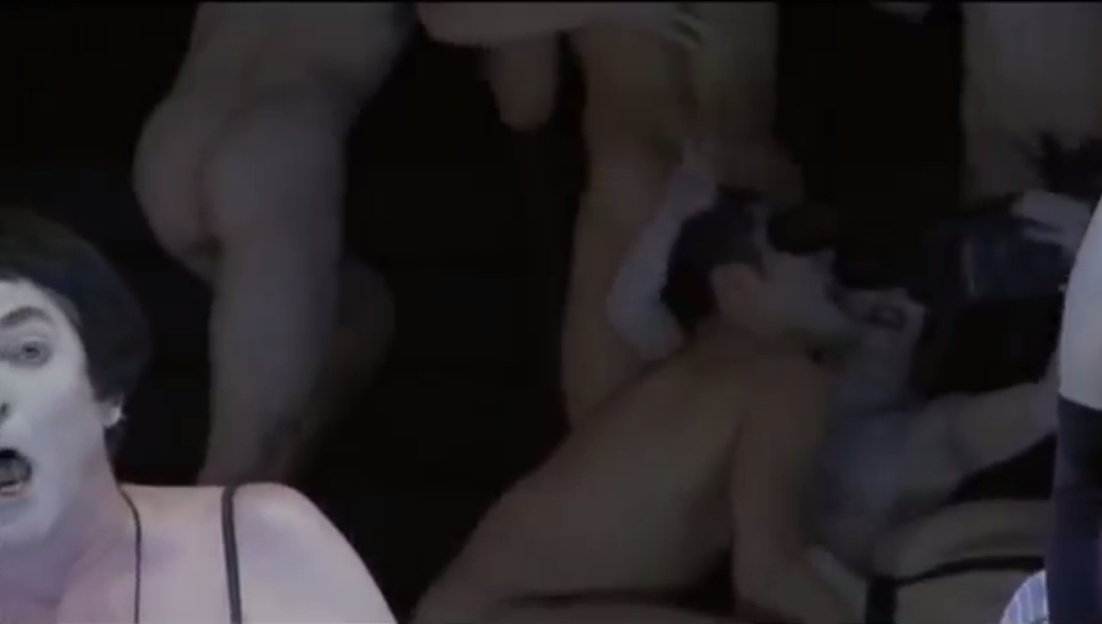 It ends up bleakly for everyone. The shadowless man dies. Hoffmann loses his reflection. Giulietta dumps him and Nicklausse gets reduced to messenger that wasn’t heeded. Nudity has served a purpose in this act – to pretend that you are winning in this gamble called love. Pleasure was temporary and the orgy stops once everyone has their fill.
It ends up bleakly for everyone. The shadowless man dies. Hoffmann loses his reflection. Giulietta dumps him and Nicklausse gets reduced to messenger that wasn’t heeded. Nudity has served a purpose in this act – to pretend that you are winning in this gamble called love. Pleasure was temporary and the orgy stops once everyone has their fill.
The ending serves as a reminder who Hoffmann is – the celebrated literary genius E.T.A. Hoffmann. His short stories served as the meat of the story so it is safe to say that “Les Contes d’Hoffmann” served as a condensed volume of his best works compressed and rewritten to fit Offenbach’s score. Would he have approved lacing his literary works with nudity? Maybe. Each generation has its way of viewing classical literary works in a way that they see fit presenting to their peers. While most opera productions would still stick to the conventional approach and remain predictable to their market, other prefer to disturb the audience and present the real Hoffmann’s short stories as they envisioned it.
Chances are this will not be the last opera I would be analyzing when it comes to nudity. There are productions that do it lately despite the strong negative feedback thrown its way by the purists since it can attract attention and fill seats in the house. I highly recommend that you click “Like” on our official Facebook page, MusicalsOnline.com, and follow us on Twitter @musicalsnews. We’d be expecting you.




